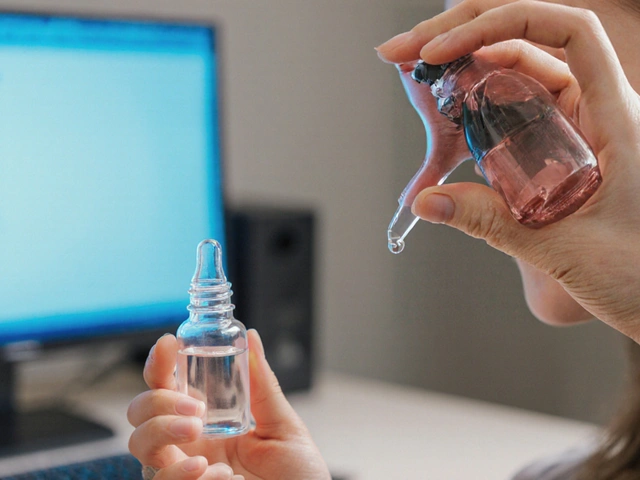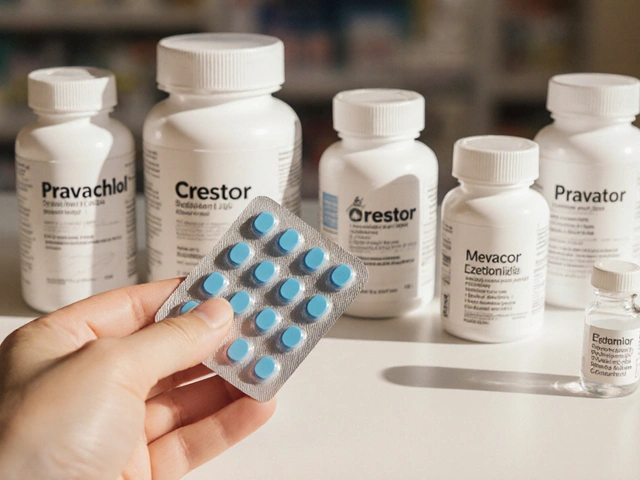Antioxidants – What They Are and Why They Matter
Ever wonder why your grandma swears by orange juice, berries, and green tea? Those foods are packed with antioxidants, the tiny molecules that fight the damage our bodies experience every day. In plain terms, antioxidants act like a clean‑up crew, neutralizing harmful leftovers called free radicals that can wear down cells, spark inflammation, and speed up aging.
What makes antioxidants worth a spot in your daily routine is that they do more than just protect cells. They can ease chronic conditions, support heart health, and even help you need fewer prescription drugs. Think of them as a low‑cost insurance policy you can buy at the grocery store.
Top Natural Antioxidant Sources
Instead of hunting for pricey supplements, start with foods that are already on your plate. Here are five everyday items that deliver a solid antioxidant punch without breaking the bank:
- Blueberries and blackberries – A handful gives you a burst of anthocyanins, the compounds that give these fruits their deep color.
- Spinach and kale – Leafy greens are loaded with vitamin C, beta‑carotene, and lutein, all proven antioxidants.
- Green tea – A single cup supplies catechins, which research shows can lower blood pressure and improve cholesterol.
- Walnuts and almonds – These nuts add vitamin E and healthy fats that help protect cell membranes.
- Turmeric – The bright orange spice contains curcumin, a powerful anti‑inflammatory antioxidant that’s cheap when bought in bulk.
Mixing these foods into meals keeps your diet varied and makes it easy to hit a daily antioxidant target. If you’re short on time, a smoothie with frozen berries, a handful of spinach, and a splash of green tea works just as well.
How Antioxidants Can Save You Money on Medications
Many prescription drugs target the same problems antioxidants already help with, such as inflammation, blood sugar spikes, or high cholesterol. When you boost your antioxidant intake, you may notice a reduced need for extra medication, especially for mild conditions.
Take high blood pressure as an example. Studies show that a diet rich in potassium‑loaded fruits and veggies can lower systolic pressure by up to 5 mmHg. That drop often translates to lower dosage requirements for antihypertensive drugs, which means fewer pharmacy visits and lower out‑of‑pocket costs.
Another real‑world win is joint pain. People who added daily turmeric or omega‑3‑rich walnuts reported less reliance on over‑the‑counter pain relievers. Cutting back on those pills saves money and reduces the risk of side effects.
If you’re already buying supplements, look for budget‑friendly options. Generic vitamin C tablets, bulk powdered green tea extract, or supermarket‑brand fish oil capsules all deliver antioxidant benefits at a fraction of the brand‑name price.
Remember, antioxidants aren’t a cure‑all. They work best when combined with a balanced diet, regular exercise, and proper medical advice. Always talk to your doctor before changing any prescription regimen.
Bottom line: loading up on natural antioxidants is an easy, affordable way to protect your health and possibly lower medication expenses. Start small—add one berry snack or a spoonful of turmeric to dinner each week—and watch the benefits add up.

Graviola: The Natural Dietary Supplement That's Taking the Health World by Storm
Graviola, also known as soursop, is gaining serious popularity as a natural dietary supplement packed with antioxidants and potential wellness benefits. This tropical fruit is showing up in everything from teas to capsules, catching the attention of anyone interested in boosting immune health naturally. People are talking about its possible roles in fighting inflammation and even supporting healthy energy levels. But what's actually behind all the hype? Let’s break down what makes graviola the new star in the world of supplements and how you might use it safely.




